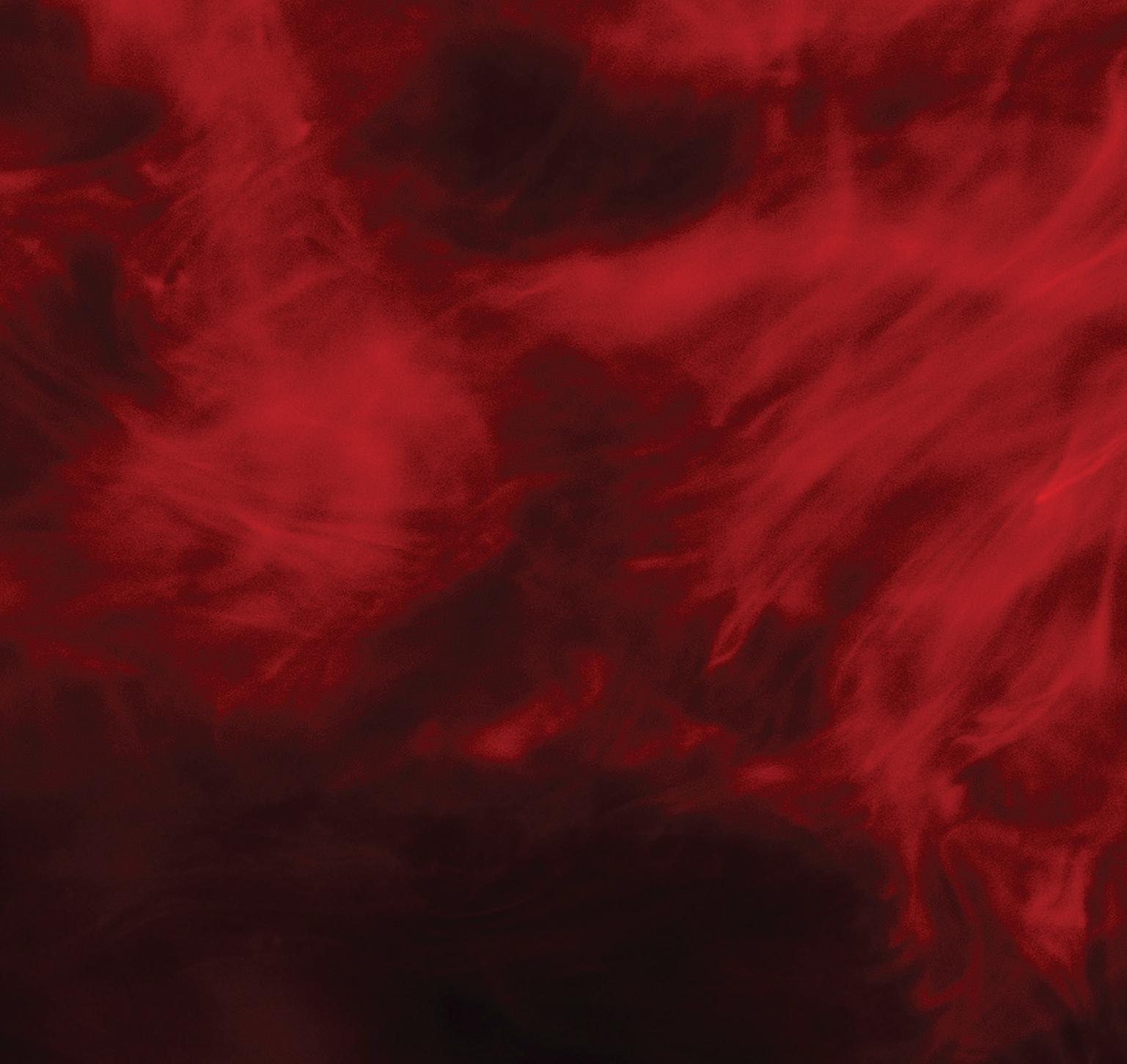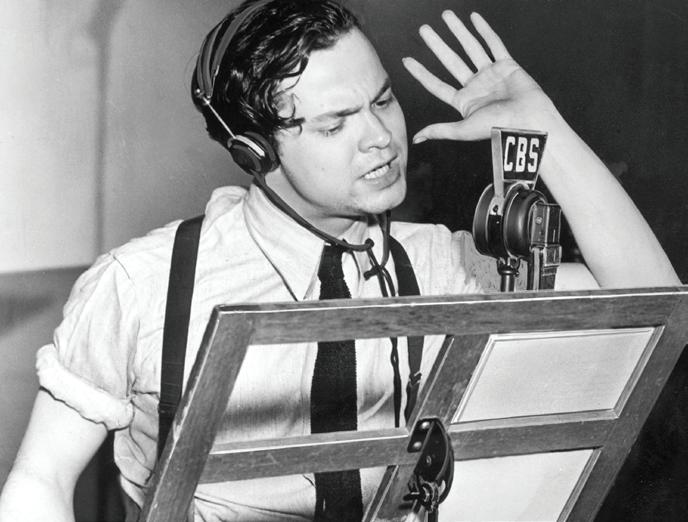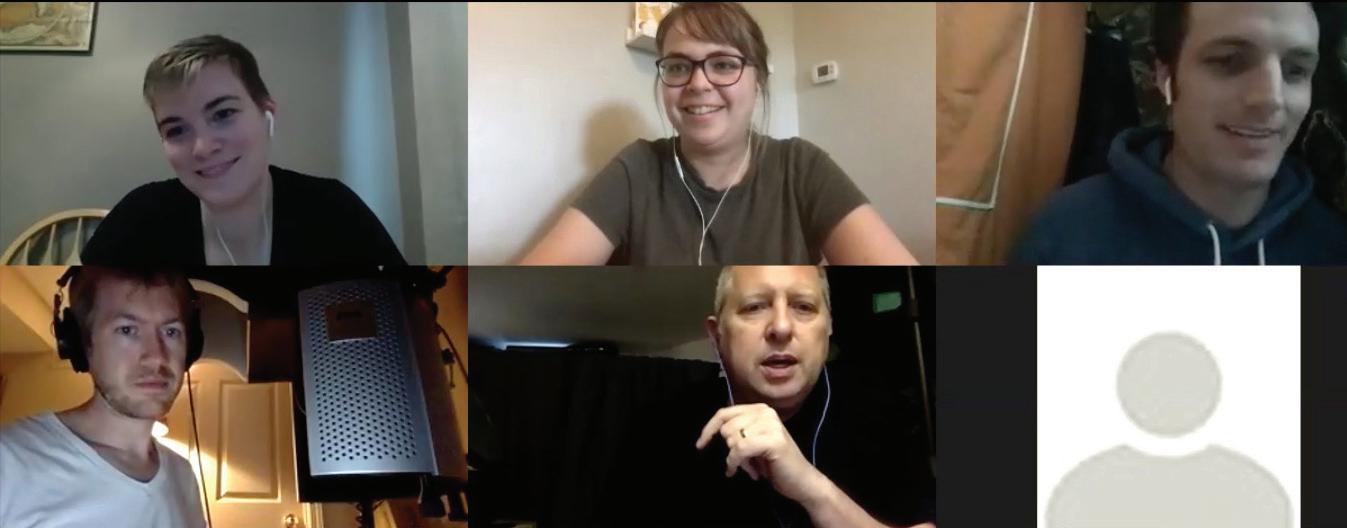
5 minute read
DRACULA: A RADIO PLAY
BEHIND-THE-SCENES OF DRACULA
When it became clear that the pandemic would prevent us from terrifying Dracula audiences in the Bingham Theatre this fall, Actors Theatre quickly pivoted, and began work on an entirely new version of the classic vampire tale. Out of those efforts came Dracula: A Radio Play — an eerily haunting, immersive listening experience, created in collaboration with award-winning radio professionals and wildly talented actors (including some familiar voices).
Advertisement
Dracula is streaming now thru November 1st ... information can be found at ActorsTheatre.org
We are excited to catch up with Jenni Page-White, who co-adapted the script with Hannah Rae Montgomery, who shares a brief look at how the process unfolded.
How did you approach adapting the story of Dracula as a listening experience?
JENNI PAGE-WHITE: There were two main sources that Hannah and I drew inspiration from in writing the adaptation. The first, of course, is Bram Stoker’s novel. Its structure feels remarkably modern for something written in 1897; it unfolds through a series of diary entries, telegrams, and letters, all written by different characters. So the narrative voice changes perspective over and over again, and the reader puts together the pieces of what’s happening by eavesdropping on characters’ private thoughts. Hannah and I really wanted to preserve that element in our adaptation — the sense that the listener was getting rarified access to the characters’ interior thoughts and fears.
Speaking of fear, another thing that struck us about Stoker’s novel was just how wonderfully suspenseful it is! Ask anyone in the year 2020 what a vampire is, and they’ll be able to tell you all sorts of details. But Stoker virtually invented the vampire genre, and his characters are confronting supernatural evil for the first time. Their discovery of the exact nature of the danger they’re facing is just achingly gradual, and there’s a delicious sense of dread throughout the whole novel. Hannah and I were totally drawn in, and we knew we wanted to recreate that heightened feeling of suspense.

Orson Welles helped adapt Dracula for a radio broadcast in 1938.
The Welles/Houseman version flows seamlessly between a diary entry, for example, and the dramatic enactment of what the diary is describing. Their adaptation and its brisk, tension building structure became a useful reference as Hannah and I made choices about what the audience would hear played out as a scene, and where characters would speak private thoughts directly to the listener.
The second source that inspired us was brought to our attention by radio producer Dan Gediman, who helped guide this project from start to finish. Orson Welles and John Houseman adapted Dracula for radio broadcast in 1938, and it’s a fantastic example of how truly engrossing radio storytelling can be. Listening to that recording helped Hannah and me to think about the sonic world of our adaptation, and about what actions can be made legible through sound alone versus dialogue — as well as how to balance all of that with narration.
What was the recording process like?
JPW: As it turns out, recording an audio play during quarantine is really complicated! Thank goodness we had experienced radio professionals on board to troubleshoot the challenges. Due to the pandemic, we couldn’t just set up one recording studio that all the actors would use. Instead, they each had to set up a sound booth in their own homes (almost invariably in a closet). Dan showed them via Zoom how to set up their equipment and how to position their mics to get the clearest sound. It was a very quick learning curve for the actors, who also became technicians on this project.

The cast of Dracula on a Zoom rehearsal.
Producing a high-quality recording over the internet also posed technical challenges. There are some great web-based audio programs out there, but Internet traffic and varying wi-fi speeds meant that it was impossible to get through a scene without someone’s connection dropping. So the decision was made that each of the actors should record an isolated track of their voice locally on both their phone and computer, which could then be mixed and edited together with other voices later.
But the actors still needed to be able to hear each other when they were in a scene together. As a solution, we would start each day by meeting in Zoom. (This was key, actually. It was early in the pandemic, but it was clear that everyone really appreciated taking a moment to socialize and to see each other’s faces, surrounded by clothes in their DIY sound booths.) Then as we began working, the actors would listen to each other through Zoom on their headphones, while simultaneously using two different programs to record their own voices.
How did the finished product come together after recording was complete?
JPW: In a radio play, the dialogue is only part of the storytelling. The project really started to come alive when producer Dan Gediman and sound designer Sue Zizza began to add all of the music and effects. They created an aural landscape for the play that is incredibly textured and specific. For example, they were able to indicate a change in location through different kinds of train sounds, transitioning from a standard gauge engine to a narrow-gauge engine. And without giving too much away, the creative choices they made to support the supernatural elements in the story are truly unsettling.
After Dan and Sue compiled a treasure trove of music and sound effect cues, the Herculean task of editing all of the different vocal tracks together with the cues fell to sound engineer Lindsay Burdsall. It was a technically complicated undertaking, but also a creative one, since her editing choices impacted the overall pace and momentum of the storytelling.
There was an extraordinary level of creative adaptability and innovation displayed by the entire team behind Dracula: A Radio Play. Everyone dove right in with a fearless spirit of adventure. It’s a real feat that it all came together so quickly!
Don't miss Dracula: A Radio Play streaming now thru November 1st ... information can be found at ActorsTheatre.org




